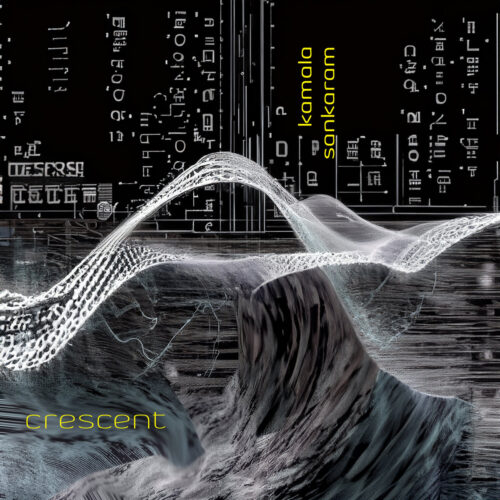Some albums surprise you with their degree of originality, because you had no particular expectations of it and the composer was unknown to you. In doing so, I am revealing a serious failing on my part, because Kamala Sankaram is a figure who has been effectively shaking up the American scene for some years now. I’d like to take this opportunity to apologise for my tardiness and so, urge you to take a closer look at her totally unique musical universe. It’s a stylistic melting pot, with musical techniques inspired by both contemporary art music and popular groove music (R’n’B, hip-hop, funk) or non European art tradition. You may say that this is already being done. Yes, but Sankaram’s approach is like no other and, above all, she adds her voice (because she is also a singer) in often onomatopoeic interventions traced over groovy rythmic architecture. Sankaram has a very wide-ranging technique (she has obviously regularly rubbed shoulders with Ligeti).
The works presented here stem from a common conceptual core, linked to the issue of climate change. They are all written for voice, electronics and percussion (a whole range carefully mastered by Brian Shankar Adler) and express a certain degree of concern, but essentially tempered by a great deal of optimism. Some pieces have the character of a jazz proposition (Crescent), others are more suggestive, even expressionist, like A Brief History of Progress, which begins with gospel intonations but dissolves into a kind of felt horror carried by diabolical electronically triturated whispers. There are also three versions of Heat Map (1990-2000, 2000-2010, 2010-2020), where the nomenclature of average world temperatures throws the undeniable worsening of global warming in our faces.
Kamala Sankara reminds me of Meredith Monk in this High art/Low art fusion of voice, electro and acoustic. The album is rounded off with a piece for voice, electronics and string quartet, 5 Rasas. A melancholy intro, like a film theme, metamorphoses into something much stranger, but beautiful, inspired by the concept of emotional states practised in Indian art. Seductive and fascinating.
The Washington Post described her as “one of the country’s most exciting opera composers”. I have no trouble believing that. One of her operas is called Miranda: The Steampunk Murder Mystery Opera. I’m already hooked by the title!
So I’m off to explore her other compositions, which you should do too, after listening to this album, of course.
























